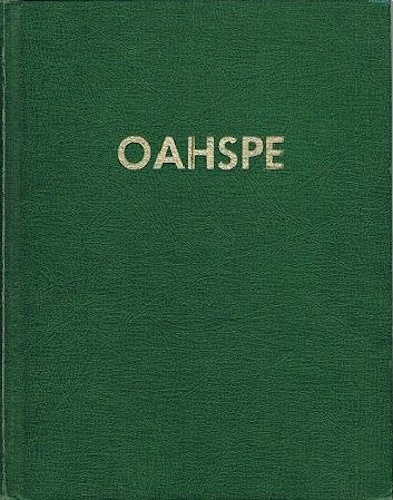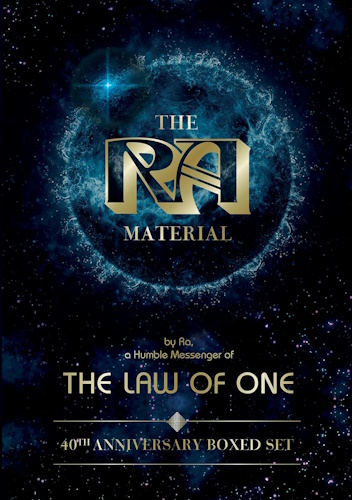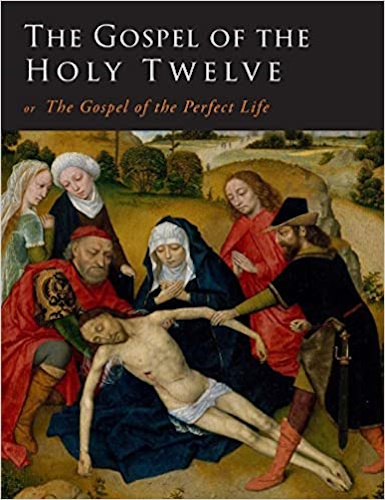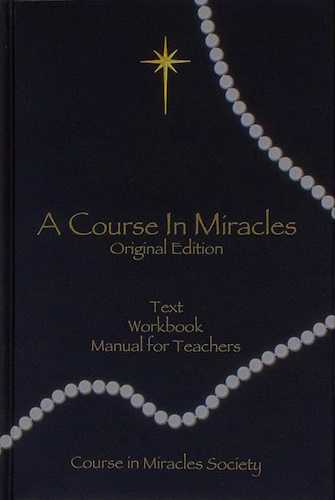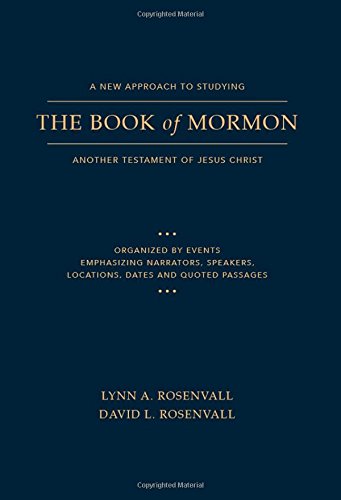
![]()
![]()
Book of Divinity
Chapter III
1. GOD said: Behold, I come to reveal what was done in heaven, that thou, O man, mayest understand the cause of things being done on earth.
2. These Divan laws were made in heaven, and by the Lords of that day, through their angels, given to mortals, whereby mortals became a manifestation of heavenly things.
3. Here, then, followeth, to wit:
4. If a man be not too weak he shall confess to all the Lords with repentance. On the other hand, if he be too weak to utter words, than shall the priest confess him by holding the right hand whilst he saith the holy words. And whilst this is being done, the ashars shall provide a sufficient number of spirits to receive the newborn, and bring him to the place in heaven that hath been previously selected for him.
5. The third Divan law also decreed as followeth: If the es'yan be a Zarathustrian, and his kin in heaven be drujas, he shall not be taken to the heaven where they are; nor shall his kin be permitted to see him for thirty days. But after thirty days in his own place in heaven, his kin, if drujas, may be permitted to see him, but only under guard.
6. The fourth Divan law: If the es'yan be a Zarathustrian and his kin in heaven belong to the organic heavens, then he shall be taken to them, and his abiding place shall be with them for a season.
7. The fifth Divan law: If the es'yan be a Zarathustrian, his spirit shall not be suffered to remain longer than three days and three nights about his mortal kindred. And then he shall be taken to his place in heaven, and given into the keeping of the asaphs, who shall explain all things to him.
8. God said: Whilst the mortal priest is reciting prayers after death, in the morning, at noon, and at sunset, the ashars shall assemble in the same house, along with the newborn spirit, and join in the singing and praying, for it will pacify the spirit and restore him to know what hath taken place. And this shall be called the sixth Divan law.
9. God said: And the same law shall apply in the case of a Zarathustrian woman as with a man. In the case of a Zarathustrian child, that died in infancy, the Div decreed:
10. The seventh Divan law: The child of a Zarathustrian being too young to speak, shall not make confession, even through the priest. The mortal priest shall say: O Thou Master Light! Behold, my child is dead! Receive Thou its little, tender spirit! Take it to Thy heavenly place of delight! And the ashars shall take the young es'yan to a place suited to it, and deliver it to the asaphs; and the asaphs shall examine it, and, if it require fetal, they shall provide it in heaven, if possible. But if it be too young, then the asaphs, with a sufficient guard, shall take it back to its mortal mother, or to its mortal father, or to its brother, or its sister, or other near king, or to whomsoever the asaphs find most advisable. And the spirit child shall be put to bed every night with its fetal mother, or fetal father, that its spirit may draw sustenance sufficient to grow into everlasting life. But the asaphs who have it in charge shall bring it away in the morning to its place in heaven. But in no case shall a Zarathustrian spirit child be left to fetal with a contentious mortal woman, nor with a drunken mortal man.
11. God propounded: If a Zarathustrian be dead, and his spirit many years in a place of heavenly delight,
p. 283
and then his mortal wife die, and she be not a Zarathustrian?
12. The members of the Diva all spake. Then God decreed the eighth Divan law, which was: The spirit of such a woman shall not be suffered to go to the place of her husband. For thirty days she shall be kept in a place suitable for her. After that she may visit her husband under guard; but until she accept the Ormazdian law, she shall not dwell with the husband, in heaven, nor with her children, in heaven. And if she have mortal children, she shall not be permitted to see them, save under guard.
13. The ninth Divan law was the same, wherein a Zarathustrian woman whose husband was not a Zarathustrian; for he was bound by the same law, and thus kept separate in heaven until he accepted the Ormazdian law.
14. God propounded: If a Zarathustrian have a wife who is not a Zarathustrian, and she have an untimely birth, whether by accident or abortion, what then of the spirit of that child? On this, all the members of Diva spake, and after that, God decreed:
15. Such spirit shall not be brought to heaven for a season, but shall be fetaled on its natural mother or father, day and night, until the full nine months are completed, and then it shall be delivered with due ceremonies by the ashars. After that it shall be fetaled the same as in the seventh Divan law. And this was the tenth Divan law.
16. The eleventh Divan law: If a Zarathustrian attain to maturity before he die, his spirit shall be es'yan two years. And during this time he shall be attended by not less than two asaphs when he goeth away from his heavenly home; and the asaphs shall teach him the mode of travel, the manner of knowing localities, both on the earth and in the first resurrection. And they shall teach him the varieties and kinds of food suited to the highest best education of a spirit. But when he traveleth with his companions of his own heavenly group, then the asaphs of the group shall go along with him and them. And, during the two years, he shall be provided from the stores in heaven with food and clothes, and he shall not labor to provide himself with anything.
17. The twelfth Divan law was in reference to the same spirit, which was: At the end of two years the asaphs shall deliver him, and such of his group as are prepared, into the department of first instruction, and his name shall be entered in the library of that department of heaven as ENTERED APPRENTICE, IN THE FIRST RESURRECTION. Here his first lessons shall be as to making clothes and providing food for himself and others. And he shall be entitled to participate, if he so desire, in the recreations of the entered apprentices, such as music, dancing, marching, painting, or other arts.
18. The thirteenth Divan law was in reference to the same spirit, which was: Not less than two years shall he serve as entered apprentice, and longer if his proficiency be not sufficient for advancement. But when he is advanced, he shall no longer be called entered apprentice, but a CRAFTSMAN. And he shall be taken to a place suitable, where his labor will contribute to the heavenly kingdoms. And his recreations shall entitle him to instruction in both corporeal and es'sean knowledge, and their correspondence. As a craftsman he shall serve seven years.
19. The fourteenth Divan law was in reference to the same spirit, which was: The craftman's examination being completed, he shall then return to labor in the nurseries in heaven, becoming assistant to the asaphs. And during this period he shall report himself at the roll call. And his teachers shall take him with them down to mortals and teach him how to see and hear corporeal things. And they shall also explain to him fetalism and the obsession of mortals by drujas, that he may understand the cause of lying, and of stealing, and of tattling, and of conspiracies, and of murders amongst mortals.
20. The fifteenth Divan law was of the same spirit, which was: After he hath served three years as nurse-assistant to the asaphs, he shall be promoted to the hospitals in heaven, as assistant to the physicians. And they shall teach him the restoration of spirits in chaos, and crazy spirits, and deformed spirits, and of sick spirits, and of spirits afflicted with foul smells, that cannot clean themselves, especially of the spirits of women who produced abortion on themselves, or suffered it to be done unto them, and of monomaniacs, and all manner of diseased spirits. And the physicians shall take him with them when they go down to mortals to remove fetals, and he shall learn how they are severed, safely to both. And they shall take him to the battle-fields, where mortals slay one another, whose spirits are in chaos, or are still fighting, and he shall assist in bringing them away from the corporeal
p. 284
place, and also learn how to restore them, and where to deliver them when restored. And if there be knots in any region near at hand, the physician shall take him to the knot, and show him how they are untied, and how they are mastered and delivered. And if there be any hell near at hand, the physicians shall take him thither and teach him how hell is delivered and its people restored. For ten years shall he serve as assistant to the physicians.
21. The sixteenth Divan law was of the same spirit, which was: Having fulfilled the part of assistant physician, he shall be promoted to the full rank of NURSE. And in that department he shall serve ten years, which completeth his emancipation in that order, and thereafter any and all the nurseries of the lower heavens shall be free and open to him, and he shall go to whatsoever one he desireth, save when specially commanded for a certain work by his Lord, or by the God of his division.
22, The seventeenth Divan law was of the same spirit, which was: Having passed a satisfactory examination by his Lord, or his Lord's attendants, he shall be promoted to the full rank of PHYSICIAN. And in that department in heaven he shall serve fifty years. And then his emancipation in that order shall be complete. And all the hospitals in the lower heavens shall be open to him, and he shall choose whichever of them he desireth as his place of labor, unless specially required by his Lord, or by the God of his division.
23. The eighteenth Divan law was of the same spirit, which was: He shall now pass an examination by his Lord or his Lord's deputy, and if he prove himself in a knowledge of the structure of both the corporeal and spiritual man, he shall be registered as ENTERED FACTOR, and he shall serve twelve years in forming and making fabrics for raiment, and for other useful and ornamental purposes.
24. The nineteenth Divan law was like unto the eighteenth, save that his labor shall be gathering and transporting food for other twelve years. And the twentieth Divan law was like unto the nineteenth, save that his labor shall be the wielding of large bodies, and of carrying the same long distances.
25. The twenty-first Divan law of the same spirit, was: He shall now enter the CREATIF as an apprentice. Thirty years shall he serve in the CREATIF, learning how to create. And the twenty-second Divan law was like unto the twenty-first, save that he shall dwell in Uz and serve twelve years in learning Uz.
26. The twenty-third Divan law of the same spirit was: He shall now enter college, and serve according to his talents, from five to forty years, learning measuring, and distances, rotations, velocities, magnets, corporeal and es'sean; currents of vortices; roadways in vortices, and how to measure roadways by their spiral force; how to find the centre and periphery of vortices. And if he serve the full term of forty years, he shall have the freedom of the eighteenth, nineteenth, twentieth, twenty-first, twenty-second and twenty-third commandments; and all such places shall be forever open for him. And if he choose to go into any of them he shall do so, unless especially ordered to some other emergent place by his Lord, or the God of his division.
27. The twenty-fourth Divan law of the same spirit was: He shall now enter architecture as an apprentice, and learn the building of heavenly mansions and cities; and he shall serve eight years, and be promoted to build judgment seats and thrones, and serve sixteen years more.
28. The twenty-fifth Divan law of the same spirit was: He shall now be eligible to the SCHOOL OF LIGHT AND DARKNESS, and learn the relative power of attraction and propulsion belonging to them; and his education here shall embrace practice and experiment; and he shall serve seventy years for the full course. After which, if he be proficient in creating light and darkness, he shall be emancipated from the twenty-fourth and twenty-fifth Divan laws, and all such places shall be open and free to him forever.
29. The twenty-sixth Divan law of the same spirit was: He shall now serve twenty-four years in building and propelling heavenly boats, and small ships. And the twenty-sixth Divan law was of like kind, which was: That he shall now travel fifty years in atmospherea, and on the earth, and on the oceans of the earth.
30. This completeth the primary education in the first resurrection.
-
Urantia Book, 44:0.11 - The Celestial Artisans
Never in your long ascendancy will you lose the power to recognize your associates of former existences. Always, as you ascend inward in the scale of life, will you retain the ability to recognize and fraternize with the fellow beings of your previous and lower levels of experience. Each new translation or resurrection will add one more group of spirit beings to your vision range without in the least depriving you of the ability to recognize your friends and fellows of former estates.
-
Princess Bride 1987 Wallace Shawn (Vizzini) and Mandy Patinkin (Inigo Montoya)
Vizzini: HE DIDN'T FALL? INCONCEIVABLE.
Inigo Montoya: You keep using that word. I do not think it means what you think it means. -
Urantia Book, 117:4.14 - The Finite God
And here is mystery: The more closely man approaches God through love, the greater the reality -- actuality -- of that man. The more man withdraws from God, the more nearly he approaches nonreality -- cessation of existence. When man consecrates his will to the doing of the Father's will, when man gives God all that he has, then does God make that man more than he is.
-
Urantia Book, 167:7.4 - The Talk About Angels
"And do you not remember that I said to you once before that, if you had your spiritual eyes anointed, you would then see the heavens opened and behold the angels of God ascending and descending? It is by the ministry of the angels that one world may be kept in touch with other worlds, for have I not repeatedly told you that I have other sheep not of this fold?"
-
Urantia Book, Foreword - 0:12.12 - The Trinities
But we know that there dwells within the human mind a fragment of God, and that there sojourns with the human soul the Spirit of Truth; and we further know that these spirit forces conspire to enable material man to grasp the reality of spiritual values and to comprehend the philosophy of universe meanings. But even more certainly we know that these spirits of the Divine Presence are able to assist man in the spiritual appropriation of all truth contributory to the enhancement of the ever-progressing reality of personal religious experience—God-consciousness.
-
Urantia Book, 1:4.3 - The Mystery Of God
When you are through down here, when your course has been run in temporary form on earth, when your trial trip in the flesh is finished, when the dust that composes the mortal tabernacle "returns to the earth whence it came"; then, it is revealed, the indwelling "Spirit shall return to God who gave it." There sojourns within each moral being of this planet a fragment of God, a part and parcel of divinity. It is not yet yours by right of possession, but it is designedly intended to be one with you if you survive the mortal existence.
-
Urantia Book, 1:4.1 - The Mystery Of God
And the greatest of all the unfathomable mysteries of God is the phenomenon of the divine indwelling of mortal minds. The manner in which the Universal Father sojourns with the creatures of time is the most profound of all universe mysteries; the divine presence in the mind of man is the mystery of mysteries.
-
Urantia Book, 1:4.6 - The Mystery Of God
To every spirit being and to every mortal creature in every sphere and on every world of the universe of universes, the Universal Father reveals all of his gracious and divine self that can be discerned or comprehended by such spirit beings and by such mortal creatures. God is no respecter of persons, either spiritual or material. The divine presence which any child of the universe enjoys at any given moment is limited only by the capacity of such a creature to receive and to discern the spirit actualities of the supermaterial world.
-
Urantia Book, 11:0.1 - The Eternal Isle Of Paradise
Paradise is the eternal center of the universe of universes and the abiding place of the Universal Father, the Eternal Son, the Infinite Spirit, and their divine co-ordinates and associates. This central Isle is the most gigantic organized body of cosmic reality in all the master universe. Paradise is a material sphere as well as a spiritual abode. All of the intelligent creation of the Universal Father is domiciled on material abodes; hence must the absolute controlling center also be material, literal. And again it should be reiterated that spirit things and spiritual beings are real.
-
Urantia Book, 50:6.4 - Planetary Culture
Culture presupposes quality of mind; culture cannot be enhanced unless mind is elevated. Superior intellect will seek a noble culture and find some way to attain such a goal. Inferior minds will spurn the highest culture even when presented to them ready-made.
-
Urantia Book, 54:1.6 - True And False Liberty
True liberty is the associate of genuine self-respect; false liberty is the consort of self-admiration. True liberty is the fruit of self-control; false liberty, the assumption of self-assertion. Self-control leads to altruistic service; self-admiration tends towards the exploitation of others for the selfish aggrandizement of such a mistaken individual as is willing to sacrifice righteous attainment for the sake of possessing unjust power over his fellow beings.
-
Urantia Book, 54:1.9 - True And False Liberty
How dare the self-willed creature encroach upon the rights of his fellows in the name of personal liberty when the Supreme Rulers of the universe stand back in merciful respect for these prerogatives of will and potentials of personality! No being, in the exercise of his supposed personal liberty, has a right to deprive any other being of those privileges of existence conferred by the Creators and duly respected by all their loyal associates, subordinates, and subjects.
-
Urantia Book, 54:1.8 - True And False Liberty
There is no error greater than that species of self-deception which leads intelligent beings to crave the exercise of power over other beings for the purpose of depriving these persons of their natural liberties. The golden rule of human fairness cries out against all such fraud, unfairness, selfishness, and unrighteousness.
